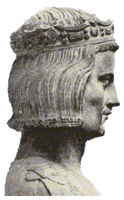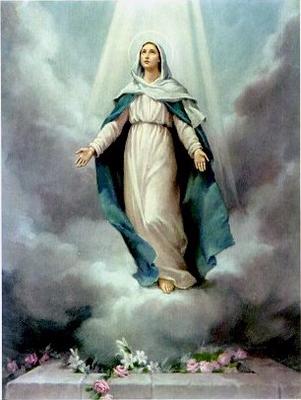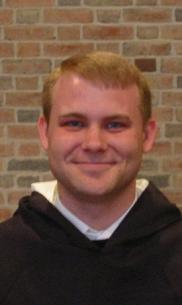"My beloved Predecessor,
Pope John Paul II, once said to the young Muslims assembled in the stadium at Casablanca, Morocco:
'The young can build a better future if they first put their faith in God and if they pledge themselves to build this new world in accordance with God's plan, with wisdom and trust' (
Insegnamenti, VIII/2, 1985, p. 500).
"It is in this spirit that I turn to you, dear and esteemed Muslim friends, to share my hopes with you and to let you know of my concerns at these particularly difficult times in our history.
"I am certain that I echo your own thoughts when I bring up one of our concerns as we notice the spread of terrorism. I know that many of you have firmly rejected, also publicly, in particular any connection between your faith and terrorism and have condemned it. I am grateful to you for this, for it contributes to the climate of trust that we need.
"Terrorist activity is continually recurring in various parts of the world, plunging people into grief and despair. Those who instigate and plan these attacks evidently wish to poison our relations and destroy trust, making use of all means, including religion, to oppose every attempt to build a peaceful and serene life together.
"Thanks be to God, we agree on the fact that terrorism of any kind is a perverse and cruel choice which shows contempt for the sacred right to life and undermines the very foundations of all civil coexistence.
"If together we can succeed in eliminating from hearts any trace of rancour, in resisting every form of intolerance and in opposing every manifestation of violence, we will turn back the wave of cruel fanaticism that endangers the lives of so many people and hinders progress towards world peace.
"The task is difficult but not impossible. The believer - and all of us, as Christians and Muslims, are believers - knows that, despite his weakness, he can count on the spiritual power of prayer.
"Dear friends, I am profoundly convinced that we must not yield to the negative pressures in our midst, but must affirm the values of mutual respect, solidarity and peace. The life of every human being is sacred, both for Christians and for Muslims. There is plenty of scope for us to act together in the service of fundamental moral values.
"The dignity of the person and the defence of the rights which that dignity confers must represent the goal of every social endeavour and of every effort to bring it to fruition. This message is conveyed to us unmistakably by the quiet but clear voice of conscience. It is a message which must be heeded and communicated to others: should it ever cease to find an echo in peoples' hearts, the world would be exposed to the darkness of a new barbarism.
"Only through recognition of the centrality of the person can a common basis for understanding be found, one which enables us to move beyond cultural conflicts and which neutralizes the disruptive power of ideologies.
"During my
Meeting last April with the delegates of Churches and Christian Communities and with representatives of the various religious traditions, I affirmed that 'the Church wants to continue building bridges of friendship with the followers of all religions, in order to seek the true good of every person and of society as a whole' (
L'Osservatore Romano, 25 April 2005, p. 4).
"Past experience teaches us that, unfortunately, relations between Christians and Muslims have not always been marked by mutual respect and understanding. How many pages of history record battles and wars that have been waged, with both sides invoking the Name of God, as if fighting and killing, the enemy could be pleasing to him. The recollection of these sad events should fill us with shame, for we know only too well what atrocities have been committed in the name of religion.
"The lessons of the past must help us to avoid repeating the same mistakes. We must seek paths of reconciliation and learn to live with respect for each other's identity. The defence of religious freedom, in this sense, is a permanent imperative, and respect for minorities is a clear sign of true civilization. In this regard, it is always right to recall what the Fathers of the Second Vatican Council said about relations with Muslims.
"'The Church looks upon Muslims with respect. They worship the one God living and subsistent, merciful and almighty, creator of heaven and earth, who has spoken to humanity and to whose decrees, even the hidden ones, they seek to submit themselves whole-heartedly, just as Abraham, to whom the Islamic faith readily relates itself, submitted to God.... Although considerable dissensions and enmities between Christians and Muslims may have arisen in the course of the centuries, the Council urges all parties that, forgetting past things, they train themselves towards sincere mutual understanding and together maintain and promote social justice and moral values as well as peace and freedom for all people' (Declaration
Nostra Aetate, n. 3).
"For us, these words of the Second Vatican Council remain the
Magna Carta of the dialogue with you, dear Muslim friends, and I am glad that you have spoken to us in the same spirit and have confirmed these intentions.
"You, my esteemed friends, represent some Muslim communities from this Country where I was born, where I studied and where I lived for a good part of my life. That is why I wanted to meet you. You guide Muslim believers and train them in the Islamic faith.
"Teaching is the vehicle through which ideas and convictions are transmitted. Words are highly influential in the education of the mind. You, therefore, have a great responsibility for the formation of the younger generation. I learn with gratitude of the spirit in which you assume responsibility.
"Christians and Muslims, we must face together the many challenges of our time. There is no room for apathy and disengagement, and even less for partiality and sectarianism. We must not yield to fear or pessimism. Rather, we must cultivate optimism and hope.
"Interreligious and intercultural dialogue between Christians and Muslims cannot be reduced to an optional extra. It is in fact a vital necessity, on which in large measure our future depends.
"The young people from many parts of the world are here in Cologne as living witnesses of solidarity, brotherhood and love.
"I pray with all my heart, dear and esteemed Muslim friends, that the merciful and compassionate God may protect you, bless you and enlighten you always.
"May the God of peace lift up our hearts, nourish our hope and guide our steps on the paths of the world."
Benedict XVI
Address to representatives of some Muslim communities
 A Penitent Blogger
A Penitent Blogger















